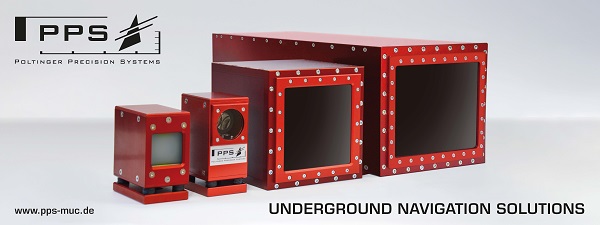Norway's national road administration Nye Veier works on recycling sludge waste and cutting greenhouse gas emissions
National road administration company Nye Veier in Norway releases information on a system to recycle sludge waste and to cut greenhouse gas emissions.
Without processing, sludge from the driving of tunnels is classified as waste. A new processing method is now being tested on Nye Veiers E39 project in Lyngdal, Agder. The goal is for large parts of the sludge to be reused. It could significantly reduce waste quantities and the need for driving to landfill.
In 2022, New Roads was awarded NOK 8.3 million in support from the Ministry of Transport (SD) for the pilot project. The funds allocated new roads are part of a national pot of around NOK 60 million, such as the Storting earmarked various pilot projects for fossil -free construction sites. The sludge processing project in Lyngdal started in the spring of 2022, and ends in the first part of 2024. Then the driving of the tunnel runs will be completed.
New Veier's climate strategy in practice
In 2021, New Roads adopted a new climate strategy for the company. Among other things, the company has set itself the goal of being a clear driver for new and innovative climate and environmental solutions in the transport sector, and incorporates this into the competitive basis. Nye Veers Harald J. Solvik is the project manager for the facility as a full activity in Lyngdal. The project consists of more than 12,000 meters with a tunnel distributed on two long, double tunnels. After a contract was signed with the working community Implenia Stangeland, that New Roads took the initiative above the contractor to present proposals for forward -looking small projects to reduce the climate impact. The contractor came up with the proposal associated with the sludge handling.
- This is one of many positive contributions that have made a dialogue between the client and the supplier, and indicates that industry cooperation is what is needed to find the specific and feasible solutions bearing fruits. At the same time, we are very pleased with stimuli that comes from the political team via the Ministry's initiative and grant scheme, says project manager Harald J. Solvik.
Maarten Lohne van der Eynden is the subject manager in New Roads. He thinks the project is interesting.
- The innovation project in Lyngdal is in line with our climate and environmental ambitions. If this project succeeds, reduced emissions can be achieved, reducing waste volumes sharply and at the same time removing a significant number of truck transports with tunnel lambs from the roads. This also has traffic safety and comfort winnings for other road users, says Maarten Lohne van der Eynden.
The contractor is well in the process of processing sludge from the cabbage and Rosså tunnels.
Processing the sludge to useful dry matter Implenia Stangeland tries two different technologies (filter press and vacuum strap) for processing the sludge. This occurs in three dry matter systems placed throughout the project's length. Today's tunnel lamb is picked up by suction cars and delivered to landfill.
- By lowering the water content in the sludge, the dry matter can be used as a filler within the project area. The water being squeezed out can also be more easily cleaned of pollution. In addition, the pH value is regulated in the tunnel water, so it is not harmful to release in nature, explains the construction manager for the tunnel, Adrian Morsund from Implenia Stangeland.
Dry fabric is left of solid particles, after water and oil are removed from the tunnel lamb.
- So far we have produced up to 400,000 liters of dry matter. About 95 percent of the masses are in a state class that is possible to reuse in the project. The remaining 5 percent are delivered on approved landfill for special waste, says Morsund.
Hope for complete circular economy
The goal in the long term is that the purification process means that 100 per cent of the tunnel lamb can be refined to reusable dry matter, explains Adrian Morsund. There will be circular economy in practice (total reuse without waste).
- We already see that the effect is very good, although it is still early in the pilot project. Both builders and contractors in the tunnel industry in general can have an effect on the results, if it turns out that the pressing of sludge to dry matter yields gains, says the tunnel manager for tunnel.
Usually, tunnel lamb must be transported to approved reception, often over large distances. This also does not provide insignificant CO2 emissions from the transport.
-With a reduction in the water content, the transport requirement is reducing, and thus also the CO2 emissions, adds project manager for E39 Lyngdal Øst-Lyngdal Vest, Adler Enoksen, from Implenia Stangeland.
FACTS
E39 Lyngdal east- Lyngdal west
• 9.7 kilometers four -lane highway with a speed limit 110 km/h from Herdal to Røyskår in Lyngdal municipality, Agder. Two two -run tunnels. The cabbage tunnel 2700 meters and the Rosså tunnel 3400 meters.
• Road construction started in October 2021, and completed in 2025.
• The main bridges are Kvelland bridge (300 meters) and Hårikstad bridge (100 meters). In addition, several smaller bridges will be built: Tømmervik bridge, Møllevei bridge and Raunesteinslibrua. The new Grøvan bridge is also part of the project.
• The Herdalskrysset and the Røysvårskssset: These board crossings connect the current E39 to a new road. Here comes pedestrian and bicycle paths along supply routes. They become important hubs for public transport, with commuter parking and charging options.
cover tunnel photo by: Matt Brown from London, England / CC BY
Copyright 2019-2024 TunnelContact.com








https://kommunikasjon.ntb.no/pressemelding/resirkulerer-slamavfall-og-kutter-klimagassutslipp?publisherId=14424980&releaseId=17955008&lang=no
Resirkulerer slamavfall og kutter klimagassutslipp | Nye Veier
kommunikasjon.ntb.noUten å bearbeides er slam fra driving av tunneler klassifisert som avfall. Nå testes ny foredlingsmetode ut på Nye Veiers E39-prosjekt i Lyngdal, Agder. Målet er at store deler av slammet skal kunne gjenbrukes. Det vil kunne redusere avfallsmengder...